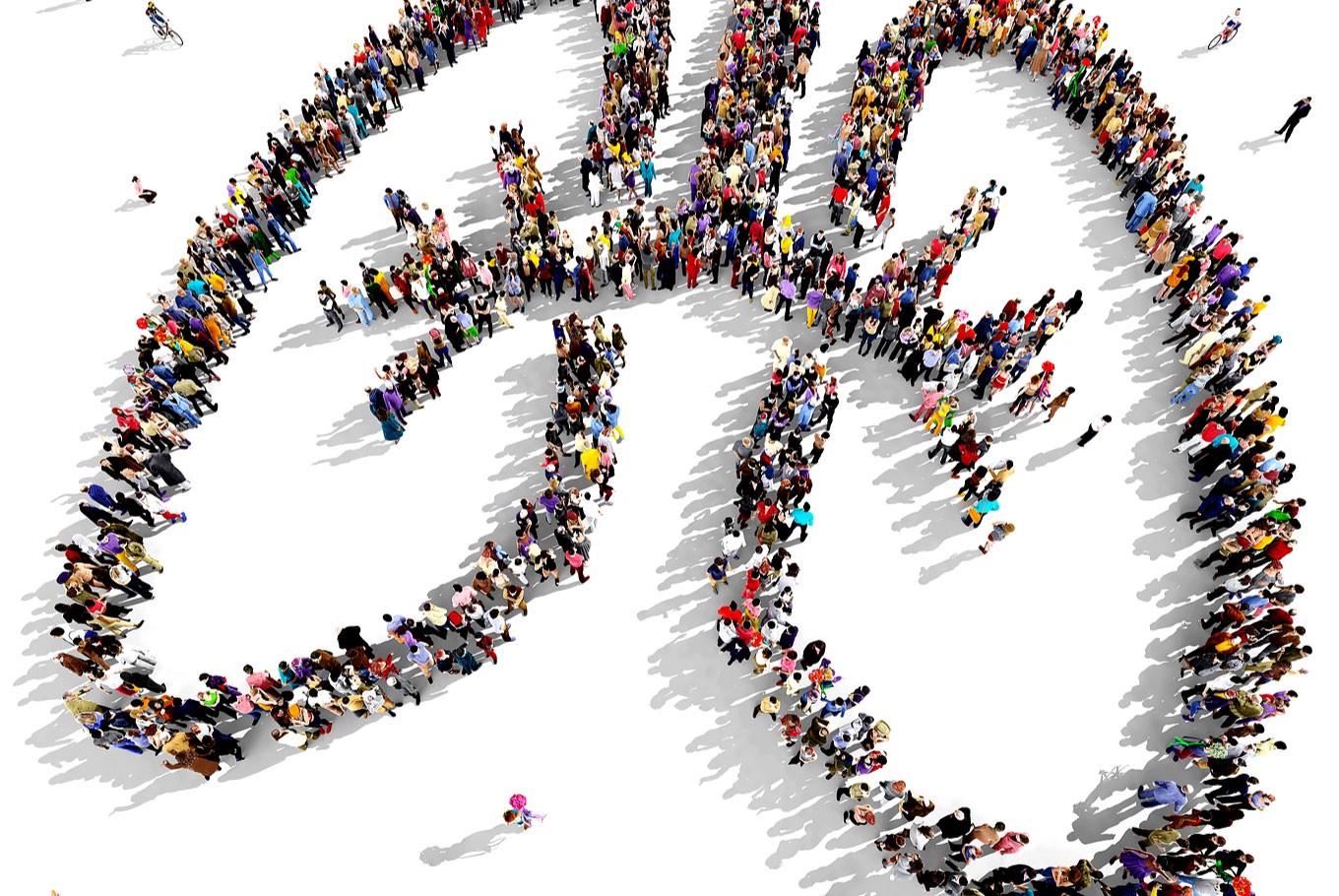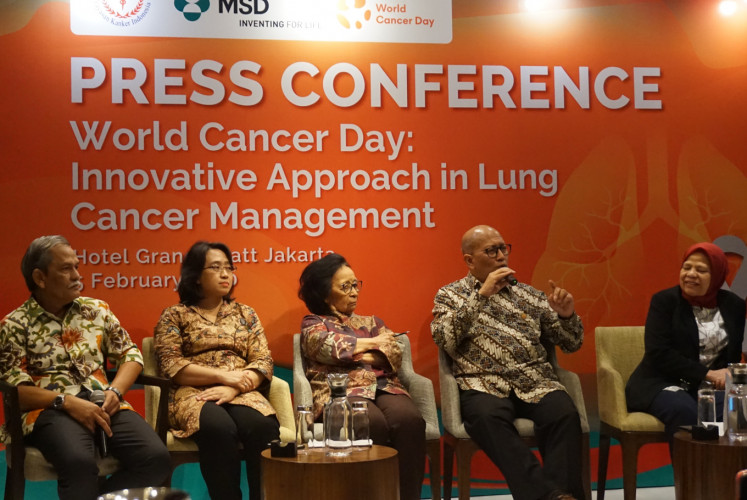Popular Reads
Top Results
Can't find what you're looking for?
View all search resultsPopular Reads
Top Results
Can't find what you're looking for?
View all search resultsImmuno-oncology provides better chance of beating lung cancer
Lung cancer is among the deadliest types of cancer. According to 2018 data from cancer research organization Globocan, 26,095 people in Indonesia die of lung cancer annually.
Change text size
Gift Premium Articles
to Anyone
W
hile most people were busy celebrating New Year’s Eve in 2005, Albert “Berthie” Charles Sompie underwent surgery to remove his right lung.
The former national softball athlete was diagnosed with stage IIIB lung cancer in the same year. He said his lifestyle was healthy, but that he had been addicted to smoking since he was 17 years old.
“I could smoke three packs of cigarettes per day,” Berthie told The Jakarta Post during the "World Cancer Day 2020: Innovative Approach in Lung Cancer Management" event on Wednesday in Central Jakarta.
When asked what kept him going at the time, he said, “I just want to see my children grow up healthy.”
Lung cancer is among the deadliest types of cancer. According to 2018 data from cancer research organization Globocan, 26,095 people in Indonesia die of lung cancer annually.
This type of cancer is sometimes misdiagnosed as tuberculosis due to their similar symptoms, such as coughing, chest pain and shortness of breath. Early lung cancer detection can also be difficult as patients may not feel pain in their chest until the cancer is already severe. Berthie, for instance, didn’t feel any symptoms prior to the diagnosis, but he experienced extreme weight-loss, up to 20 kilograms, over the span of one month prior to surgery.
Different treatments are available for lung cancer, including surgery, radiation, chemotherapy, targeted therapy and, the most recent, immuno-oncology.
Lung cancer survivor Albert 'Berthie' Charles Sompie (left), pulmonologist at Persahabatan General Hospital in East Jakarta Sita Andarini, (second left), senior immunologist Siti Boedina (center), head of the Indonesia Cancer Foundation (YKI) Aru Wisaksono Sudoyo (second right) and pulmonologist Elisna Syahruddin during the "World Cancer Day 2020: Innovative Approach in Lung Cancer Management" event on Feb. 6 in Central Jakarta. (JP/Ni Nyoman Wira)United States-based pharmaceutical giant Merck Sharp and Dohme (MSD) has conducted more than 1,000 immuno-oncology tests, including more than 600 tests that combine immuno-oncology with other cancer treatments. The tests cover more than 30 types of cancer, including lung cancer.
Said to be the most innovative treatment, immuno-oncology basically uses patients’ immune systems to fight back and is different from chemotherapy, which works by killing cancer cells. The treatment uses intravenous therapy to insert medicine — such as pembrolizumab, atezolizumab, durvalumab and nivolumab — into the patient’s body. The treatment can be done in one day and can also be combined with chemotherapy.
“Immuno-oncology treatment has been available in Indonesia since 2017,” said Sita Andarini, a pulmonologist at Persahabatan General Hospital in East Jakarta. “It’s for patients whose lung cancer is in the non-operable stages of IIIA, IIIB and IV. When combined with chemotherapy, it’s for patients who have IIIB and IV stages of lung cancer.”
Sita added that the response rate, or percentage of patients whose cancer disappeared after treatment, of patients who received a combination of immune-therapy and chemotherapy was 70 percent, far higher than the 40 percent response rate for chemotherapy on its own.
However, immune-oncology also has side-effects, including autoimmunity, a medical condition in which a person's immune system attacks their own body, and pneumonitis. (kes)












